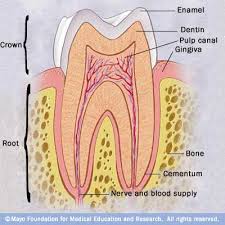Making the Switch to a Vegetarian or Vegan Diet, from the May, 2014 Harvard Women’s Health Watch
Boston, MA (PRWEB) May 13, 2014
Several million Americans have abandoned red meat and poultry in favor of a predominantly plant-based diet. One reason some are making the switch is evidence of the health perks from going vegetarian or vegan, reports the May 2014 Harvard Women’s Health Watch.
“There’s certainly some research on the benefits of the vegetarian diet,” says Kathy McManus, director of the Department of Nutrition at Harvard-affiliated Brigham and Women’s Hospital. It can help lower or control weight, reduce the chances of developing heart disease, diabetes, and cancer, and possibly lead to a longer, healthier life.
There are a variety of plant-based diets, named largely for what they include or exclude:
Semi-vegetarians includes meat and other animal-based foods. Many semi-vegetarians eat chicken and fish but not red meat.
Pescatarians avoid meat and poultry but still eat fish and seafood.
Lacto-ovo vegetarians skip meat, fish, and poultry but include dairy and eggs in their diet.
Vegans eat only food from plants. They don’t consume any animal-based foods—not even eggs or dairy products.
While vegetarian and vegan diets are generally healthy, they can lack certain nutrients. People who follow these diets may have to use a little creativity to make sure they get enough protein, calcium, iron, and vitamin B12.
Vegetarians can find many of these nutrients in eggs and dairy, and vegans can get them from plant sources. But some people may need an added boost. “Because vitamin B12 is found only in animal sources, if you’re a vegan you might consider taking a vitamin supplement,” McManus says. Some vegetarians also take omega-3 fatty acid supplements. These can be made from fish or plants like flaxseeds.
Read the full-length article: “Is a vegetarian or vegan diet for you?”
Also in the May, 2014 issue of the Harvard Women’s Health Watch:
New guidelines change blood pressure targets
What’s hiding in your medicines?
Things to think about before having a joint replaced
Harvard Women’s Health Watch is available from Harvard Health Publications, the publishing division of Harvard Medical School, for $ 20 per year. Subscribe at http://www.health.harvard.edu/newsletters/womens or by calling 877-649-9457 (toll-free).
XXX
Media: Contact Kristen Rapoza at hhpmedia(at)hms(dot)harvard(dot)edu for a complimentary copy of the newsletter, or to receive our press releases directly.
©Copyright 1997-
, Vocus PRW Holdings, LLC.
Vocus, PRWeb, and Publicity Wire are trademarks or registered trademarks of Vocus, Inc. or Vocus PRW Holdings, LLC.
 Fat Burning Kitchen:Never count calories again
Fat Burning Kitchen:Never count calories again Low Glycemic Veggies
Low Glycemic Veggies 100% protein quinoa grain
100% protein quinoa grain Daily Antioxidant/Natural Remedies
Daily Antioxidant/Natural Remedies Get Truth About Healthy Teeth
Get Truth About Healthy Teeth Healthy Cooking
Healthy Cooking
Leave a Reply
You must be logged in to post a comment.